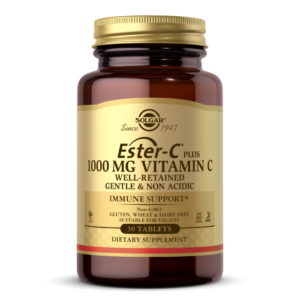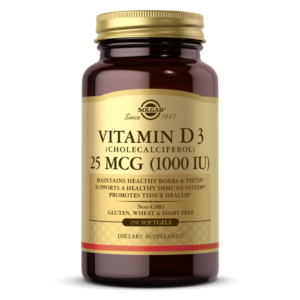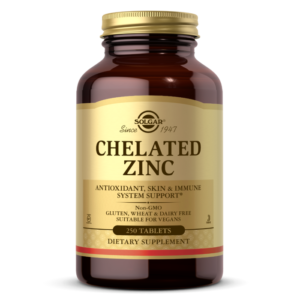Key Takeaways:
- You should be supporting not boosting your immune system, a healthy amount of exercise doesn’t make you sick, and what you eat always matters.
- There are many effective ways to strengthen your immune system, such as eating a nutrient-rich diet, getting enough sleep, managing stress, and more.
Can you actually boost your immune system? Does exercise increase your chances of getting sick? The most common myths about the immune system – debunked.
More than ever before, scientists are exploring and learning about our immune systems – and debunking common misconceptions as they do it.
Let’s take a look at some of the most common myths surrounding immunity, and the truths behind them.
Myth #1: Immunity should be boosted.
The truth:
People (and “experts”) talk about “boosting your immune system” all the time.
The truth is, when referring to our immune systems, the word “boosting” is actually a slight misnomer. “Boosting” could imply an increase in white blood cells or immune response. And when it comes to immune response, there can in fact be too much of a good thing. For example, a hyperactive immune system is responsible for allergic reactions to ordinary, nontoxic substances, and a high white blood cell count could indicate an infection, allergy, or a symptom of an underlying disease.
Instead, you should actively support a balanced immune system. The best ways to do this are to get enough sleep, exercise regularly, and eat a healthy, balanced diet. You can also take supplementary vitamins such as Ester-C® Plus, to help your immune system be at the top of its game. Ester-C® Plus provides vitamin C, which supports the action of white blood cells in the immune system.*
Myth #2: If you have a strong immune system, you don’t need to be as careful.
The truth:
Just because you feel healthy doesn’t mean your immune system is invincible. Recent twin studies have shown that our immune health is shaped more by our life habits and experiences than by the DNA passed down from our parents.
This means that over the course of your life, your immune system is making and storing new memories of how to better protect you in the future. Your immune system is constantly learning and training. Even your self-proclaimed “strong immune system” could use a little extra support with this immense undertaking.
Never forget to wash your hands, and don’t pass on Vitamin D – an important nutrient of your immune system.*
Myth #3: Any exercise will weaken your immune system.
The truth:
In the 1980s, researchers studied intense endurance sporting events, such as the Los Angeles Marathon, and discovered that many competitors had symptoms of infection following the race. This contributed to the widespread belief that all types of exercise suppress your immune system, and increases your risk of infection.
However, more recent research done by the Department of Health at the University of Bath has discovered that instead of stifling your immune system, a moderate amount of exercise is actually beneficial for it. Not only does regular moderate exercise lend to overall health and wellness, but it may actually help the immune system directly. Think about it – exercise increases circulation, causing the white blood cells to move through the body more freely, allowing them to do their job more effectively.
So don’t be afraid to get your body moving! But just like anything else, there’s a sweet spot. Don’t over-exercise or put physical activity at the expense of proper rest.
Myth #4: What you eat doesn’t matter, as long as it’s relatively healthy.
The truth:
Subbing out fries for salad or saying no to extra cheese are always good choices, but your immune system needs a little more than that.
Your diet matters to your immune system for two reasons: 1) you need to eat enough – to provide it with energy, and 2) it needs the right nutrients to work its potential. The immune system is a complex system made up of organs, cells, tissues, and proteins that all work together to coordinate an immune response. Each stage of the immune response requires the presence of various different micronutrients.*
Eating the rainbow is one way to ensure a balanced diet, but it can be difficult to ensure you’re getting enough of your essential nutrients. Try supplementing with foundational nutrients for immune health such as – Vitamin C, D, E, and Zinc.*
Myth #5: Losing weight quickly will boost your immune system.
The truth:
Losing weight is often equated with being healthy. However, rapid weight loss often involves restrictive dieting and intense exercise – and although diet and exercise are important, weight loss should never come at the cost of proper nutrition or rest.
So what can you do to support your immune system?
How to Support Your Immune System
Manage stress
Learning to prevent unnecessary stress is the first step in managing it. Reflect on the most prevalent and repetitive stress factors in your life, and think about possible ways you can prevent this stress from occurring.
Do you need to become better at planning? Learn how to say no? Become a “list-person?” Sometimes the answers for preventing stress are right in front of us.
You can’t always control the amount of stress in your life, but you can control how you deal with it. Meditation, breathing techniques, and speaking positively to yourself are simple strategies you can incorporate into your daily life that can offer enormous benefits.
Get enough sleep
We’ve all made the mistake of falling into YouTube’s black hole late at night, only to check the time and realize it’s 3 in the morning. But a good night’s sleep is one of the most powerful ways to support your immune system. If you struggle to get the recommended 7-9 hours per night, there are a few easy ways to improve the quality of your sleep:
- Go to bed and wake up at the same time every night
- Avoid screens 1-2 hours before your bedtime
- Exercise during the day
- Watch your caffeine intake during the day (no 7pm coffees!)
- Take melatonin half an hour before you sleep, to help your body fall asleep faster, and stay asleep longer.*
Eat mindfully
Eating mindfully doesn’t mean counting grams of fat or only eating salads. Eating mindfully means thinking about what you eat before you eat it, and always considering your nutrient intake.
In the same way your diet affects your external body, it also affects the internal elements, like your immune system. A healthy diet is essential to proper immune function. Increase your intake of antioxidant-rich foods – such as blueberries, broccoli, spinach, and turmeric.* Even dark chocolate is known to have antioxidant properties, so go ahead and indulge!*
If you find it difficult to get your proper intake of nutrients through your diet, consider taking supplements such as Vitamin C, Vitamin E, or Zinc – the foundation your immune system needs to stay at its best.*
Exercise consistently
You don’t need to be running a marathon or climbing Everest. Consistent, moderate exercise – such as an evening walk or casual bike ride – is essential to keeping your immune system strong. You can even make it fun, by following a YouTube workout video or learning a TikTok dance!
Wash your hands frequently
No list of immune system supporters would be complete without a reminder to wash your hands! They say you should scrub for as long as it takes to sing the alphabet twice, but singing the chorus of your favorite song could be the same amount of time – and more fun.
Supplement with Vitamin C and Zinc
Vitamin C and Zinc are a couple of your immune system’s BFFs. Vitamin C is a potent antioxidant that helps fight free radicals. It is also important for the functioning of white blood cells, which are important components of the immune system.* Likewise, Zinc supports proper immune function and plays an important role in helping your body fight free radicals.*
You can shop Solgar®’s premium Vitamin C and Zinc on Amazon.com
GET THE LATEST UPDATES AND EXCLUSIVE DEALS WHEN YOU SIGN UP FOR OUR NEWSLETTER!
Be supportive!
Although we tend to only think about our immune health when we’re afraid of getting sick, your immune system is actually working full-time so that you can continue to do the things you love. So, while it works thanklessly to protect you, make sure you’re giving it the support it deserves by exercising, getting adequate sleep, and supplementing with premium vitamins where necessary.
For more general health information and valuable immunity support tips, follow us on Instagram! (@solgar)
The information provided on this site is intended for your general knowledge only and is not a substitute for professional medical advice or treatment for specific medical conditions. Always seek the advice of your physician or other qualified healthcare provider with any questions you may have regarding a medical condition. The information on this website is not intended to diagnose, treat, cure or prevent any disease. Never disregard medical advice or delay in seeking it because of something you have read on the Solgar® site.
*These statements have not been evaluated by the Food and Drug Administration. These products are not intended to diagnose, treat, cure or prevent any disease.
References:
Aranow C. Vitamin D and the immune system. J Investig Med. 2011 Aug; 59(6): 881-886. DOI: 10.231/JIM.0b013e31821b8755
Campbell & Turner. Debunking the Myth of Exercise-Induced Immune Suppression: Redefining the Impact of Exercise on Immunological Health Across the Lifespan. Frontiers in Immunology, 2018; 9 DOI: 10.3389/fimmu.2018.00648
Wu D, Lewis ED, Pae M, Meydani SM. Analysis of Evidence, Mechanisms, and Clinical Relevance. Front Immunol. 2018; 9: 3160. DOI: https://dx.doi.org/10.3389%2Ffimmu.2018.03160





